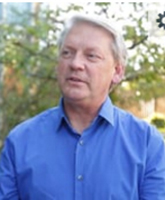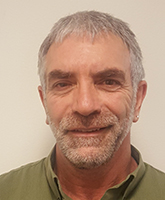Utilities and energy providers leverage a lot of partners and products to keep our lights on and more. Becoming one of those utility partners and products can be difficult. A panel of utility technology experts shared insights at the May #CleanTechBacon breakfast sponsored by Perkins Coie.
The expert panel included:
 |
 |
 |
 |
|
| Will Einstein Puget Sound Energy |
Curt Kirkeby Avista Utilities |
David Holmes Seattle City Light |
Will Odell Snohomish County PUD |
Susan Betcher Perkins Coie (Moderator) |
Here are seven key takeaways from the panel session:
1. Want a utility contract? Better understand your customer. Doing business with utilities is all about knowing the issues and initiatives that impact energy providers. Strategic initiatives, regulations, load growth, safety and security…utilities are trying to meet a variety of demands. But, most are not set up to research or develop solutions. That leaves the door open for partnerships and contracts. The trick is presenting the right solution to the right problem at the right time.
2. Meeting the needs of customers is job number one. Utilities are driven by customer needs. Each panelist outlined how they continually interview business and residential customers to better understand and meet their needs. Customers want to choose renewables, but they want more ways to do it. Avista Utilities is exploring more options for solar investments as a result of this feedback. Pricing remains an issue, but the utility is working to deliver on customer demands.
The Puget Sound Energy Green Direct program grew from specific, direct conversations designed to solicit customer feedback. Customers asked for higher premium solutions that exceed typical green power and renewable offset programs.
3. Growing populations and advancing technologies present a growing need for modernization. The region is growing in population and complexity. Utilities need to anticipate and meet that growth. Seattle City Light is pushing grid modernization and infrastructure investments aggressively while rolling out new efficiency programs. Seattle City Light is also exploring “neighbor grid” solutions (adding to the smart grid and micro grid lexicon) to build resiliency and flexibility across Seattle’s growing population and energy demands.
4. Are utilities a central or distributed resource? Utilities have traditionally served as a central energy resource, but that’s shifting with the rise of distributed resources, smart grid capabilities and demand management opportunities. Energy storage is also pushing modern capabilities. Avista Utilities is exploring distributed battery designs that can charge and discharge residential batteries based on load demand. The result incentivizes residential battery purchases while giving utilities more flexibility. Grid management software needs to be expanded to optimize the equation. Having assets is not enough. Utilities need to be able to use those assets to benefit customers.
5. Utilities need new partnerships for new opportunities. New companies with new types of technologies are entering the energy market. Each utility is working to understand how to work with them to create new opportunities. Snohomish County PUD is exploring partnerships to align grid realities with modern day technology expectations. The grid is old, and wasn’t designed for today’s modern technology needs and consumer expectations. Utilities are challenged to keep the grid current, safe and reliable.
Avista Utilities is diving deep into the Internet-of-Things (IoT) to integrate with Google, Amazon and Microsoft technologies. The utility is building a shared energy economy to increase reliability, resiliency and community engagement. Public/private partnerships across industry, universities and national laboratories are a great way to get that done.
6. Will utilities continue to own the energy space? It’s a topic that every utility is exploring as customer expectations and technology realities shift. It’s clear that Google, Amazon and Microsoft will play a role in the traditional utility space. The only question is what that role entails.
7. Change is the only absolute. Technology evolution was a common theme across the panel, but change was the only absolute guarantee. What is here today, the panel agreed, will be different tomorrow.
Want to learn more from the panel? Check out the #CleanTechBacon Twitter conversation or watch the full breakfast session recorded video below.